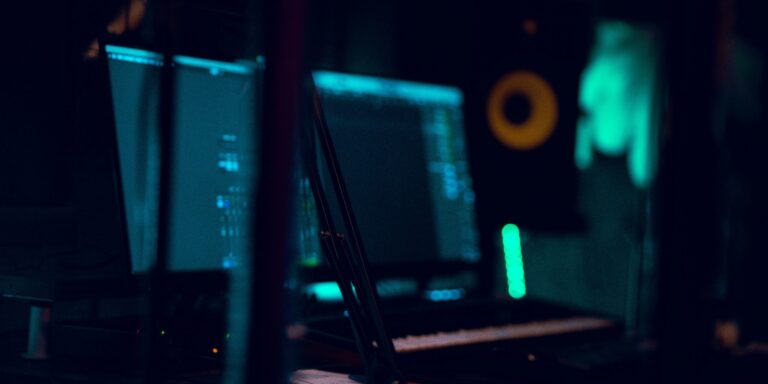Artificial Intelligence (AI) has transitioned from a buzzword to a groundbreaking tool in music production. Once a realm reserved for science fiction, AI now helps musicians compose, mix, and master their tracks. With platforms like Amper Music, Aiva, and Jukedeck, AI is making it possible for both budding and professional artists to create high-quality music. But as this technology advances, many question whether it can truly replicate the emotion and artistry of human-made music. Is AI a powerful ally for artists or a threat to the soul of music?
AI Tools Revolutionizing Music Production
AI-powered platforms are changing how music is created, giving artists—from amateurs to professionals—new ways to enhance their work. These tools simplify complex tasks, enabling musicians to produce music more efficiently and with less technical knowledge.
- Amper Music: A tool that allows users to generate custom tracks by selecting genre, mood, and instrumentation. Amper creates entire compositions in minutes, making it accessible for artists with limited resources.
- Aiva: This deep learning platform is capable of composing intricate music in a variety of styles, from classical to contemporary. It’s often used for soundtracks in films and video games, showcasing its versatility in music production.
- Jukedeck: Focused on content creators, Jukedeck generates royalty-free music based on user preferences such as tempo, genre, and mood, making it an ideal solution for video producers and podcasters.
These AI tools allow even independent artists without access to expensive studios to create polished, professional music, broadening the possibilities for music creation.
Empowering Independent Artists
AI’s impact on independent artists has been one of its most transformative aspects. Historically, music production required expensive equipment, professional studios, and a team of experts. Now, platforms like Amper Music and Aiva allow independent musicians to create high-quality tracks from the comfort of their own homes. This accessibility eliminates financial barriers and gives rise to a new wave of creators.
For example, AI tools handle the technical elements of production, like mixing and mastering, allowing musicians to focus purely on their creativity. With AI’s help, independent artists can produce full albums or soundtracks at a fraction of the cost and time traditionally required. However, some worry that this ease of access could flood the market with a high volume of content, making it harder for artists to stand out.
The Ethical Dilemma: Can AI Replace Human Emotion?
Despite the advantages, a major concern with AI in music production is whether machines can ever capture the emotional depth that human musicians bring to their work. Music, at its core, is an expression of the artist’s personal experiences, emotions, and unique perspective. AI may excel at generating technically perfect music, but it lacks the emotional nuance that comes with human creativity.
Critics argue that AI cannot replicate the emotional connection that music fosters between the artist and the listener. Music is more than just sound—it’s a vehicle for storytelling, cultural expression, and personal emotion. The fear is that AI could reduce music to something formulaic and predictable, devoid of the imperfections that give it soul.
Perspectives: Pro-AI Artists vs. Critics
The use of AI in music has sparked a divide among artists, producers, and critics. Proponents of AI view it as an invaluable tool that can assist artists in overcoming creative blocks, experimenting with new sounds, and streamlining production processes. For these artists, AI is not a replacement for human creativity but rather a powerful collaborator.
“I see AI as a tool to enhance my work,” says an electronic music producer. “It opens up new creative possibilities and helps me push the boundaries of sound. But the emotional and artistic direction of the music is still mine.”
On the other hand, critics argue that AI-generated music lacks the authenticity of human-made art. They believe that the unique qualities that make music special—its ability to convey emotion and personal experience—cannot be replicated by machines. Additionally, some fear that AI’s role in music could reduce job opportunities for human producers, engineers, and sound technicians.
“There’s a risk of losing the authenticity of music if AI takes over too much,” says a seasoned music producer. “Music is about heart and soul, and that’s something machines can’t replicate.”
The Future: AI and Human Creativity in Harmony?
Looking to the future, it seems likely that AI will coexist with human creativity rather than replace it. The key will be finding a balance where AI complements the artistic process without undermining it. Some experts suggest that AI will function as a valuable tool for tasks like sound design and mixing, while the human artist retains control over the creative aspects of the work.
In this hybrid model, AI could help artists overcome technical barriers, allowing them to focus on expressing their unique voices. Rather than replacing musicians, AI could empower them to produce more polished, intricate work while preserving the heart of the music.


